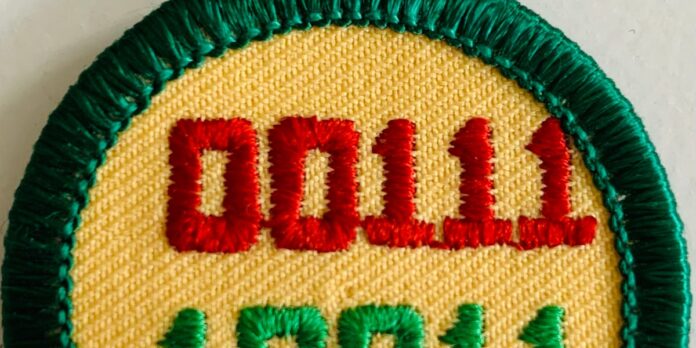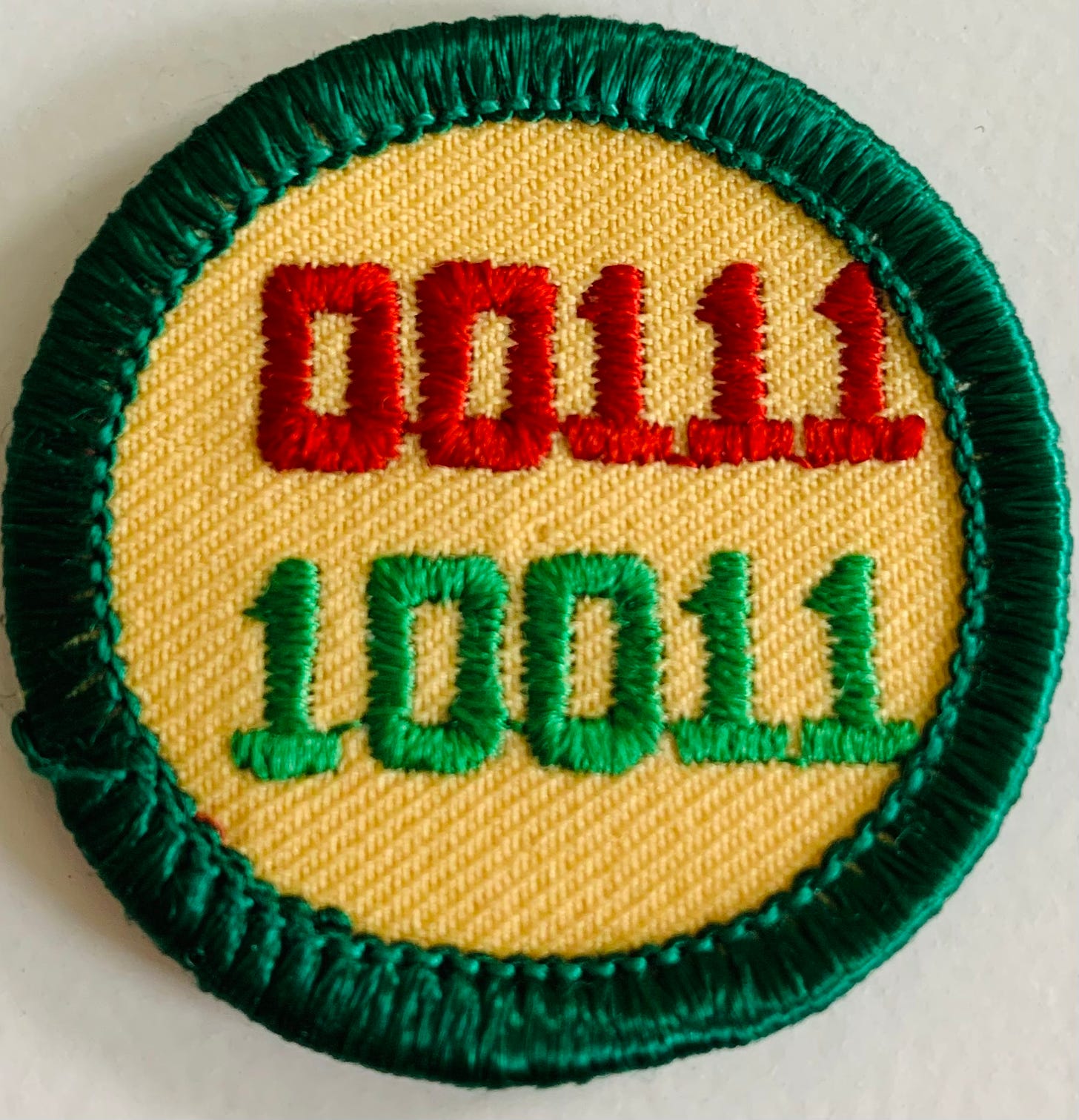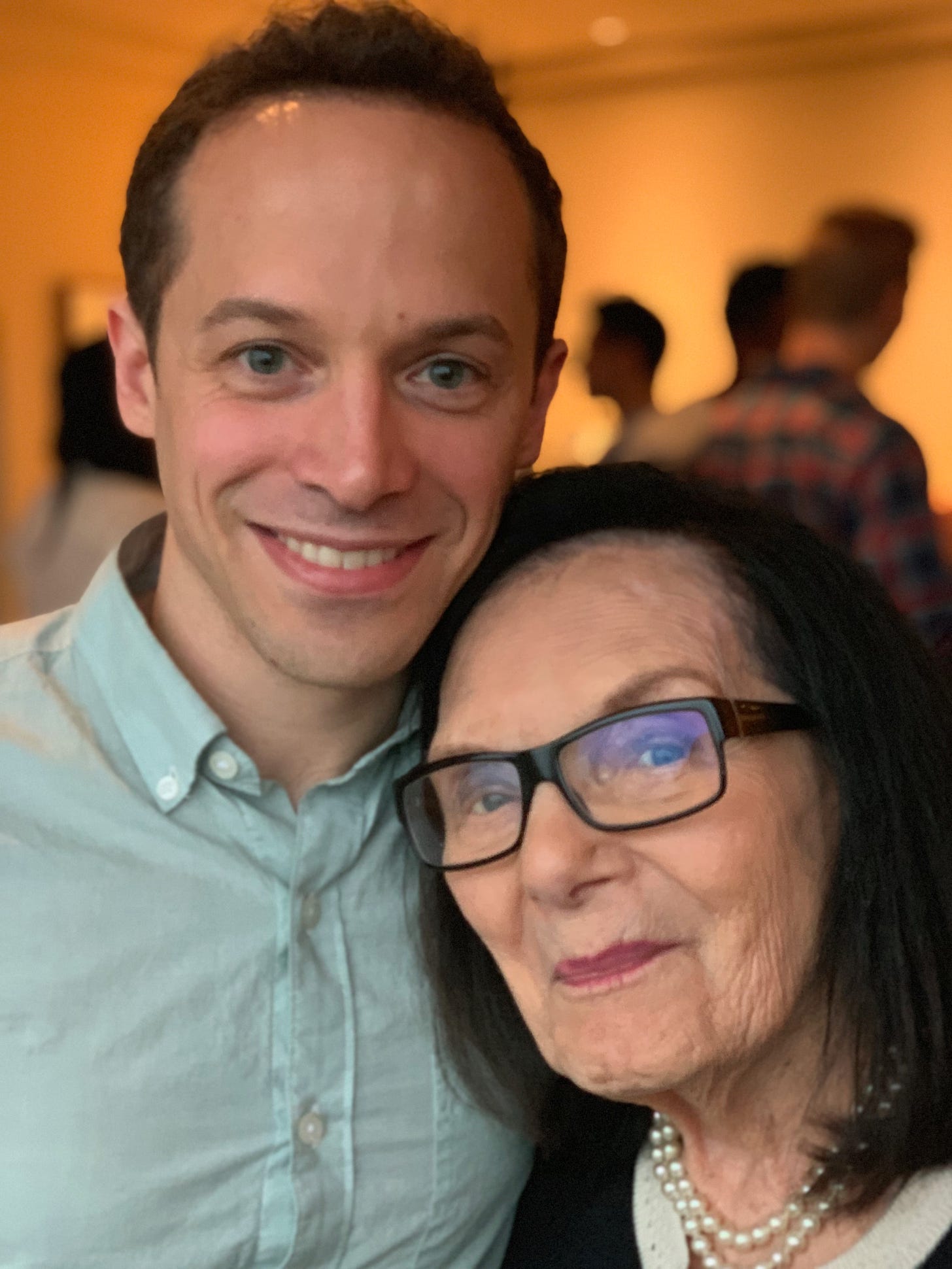
This is the third and final part of my three-part series of remembrances. You can read parts 1 and 2 here and here. This is also the last Range Widely post of the year.
I want to end this post with words from the woman featured in it. So I wish you a wonderful start to the new year, and I’m going to get the housekeeping out of the way up top.
If you appreciate this post, please share it:
If you want to support Range Widely as a free or paid subscriber:
Let’s get to it…
If you read my book, Range, then you know Frances — who passed away on December 11 at the age of 107. But I want to keep telling parts of her story, because I think she was the kind of leader who over-performed and under-self-promoted. And I want to share a personal anecdote at the end that I didn’t share in the book.
But first, Frances’s story. (If you know it already, you can skip to the bottom section for the personal anecdote, and the quote I want to end the year with.):
Frances grew up in Johnstown, Pennsylvania. When she arrived at the University of Pittsburgh’s junior college (“Junior Pitt”), she dreamed of a bookish life as a playwright — until her father died her freshman year. She was 17, the oldest of three, and was stroking his cheek when he passed, promising to care for the family. So she dropped out.
She worked as an “adman’s assistant” at the Penn Traffic Company department store, until she got married. Just in time for her husband, John, to report to the Navy during World War II. John was a combat aircrew photographer, and when he came back, he set up a studio. Frances was the studio’s jack-of-all-trades, helping with anything from high school portraits, to documentary films, to weird customer requests — like the time a customer wanted a photo of a dog to look like a painting, so Frances grabbed oil paints and got it done.
Frances adored Johnstown’s diversity, but it afforded her some ugly lessons. John was on the new Pennsylvania Human Rights Commission. When a barber claimed he didn’t have the tools to serve Black customers, John said he’d better buy them. Frances decided then that a community that valued inclusiveness should answer “yes” to the question: “When they look at us, can they find themselves?”
Frances was 34 when a prominent woman in the community stopped by her home to ask if she would volunteer to lead Girl Scout Troop 17. The previous leader had left to be a missionary in India, and other neighbors had turned down the request. So did Frances, three times. She had an eight-year-old boy and professed to know nothing about little girls. Finally, the woman told her that the group of ten-year-old girls from modest families who met in a church basement would just have to be disbanded. Frances agreed to fill in for six weeks, until a real leader was found.
To prepare, she read up on the Girl Scouts. She learned that the organization was founded eight years before women could vote in the U.S., and that the founder had reminded girls that they could be “a doctor, a lawyer, an aviatrix, or a hot-air balloonist.” Frances thought back to second grade, when she announced that she wanted to be a pilot and her classmates laughed. She ended up sticking with Troop 17 for eight years, until they graduated high school.
Afterward, she kept picking up Girl Scout roles she didn’t seek out, often declined initially, and then ended up sticking with. She later described her life philosophy as: “doing what’s needed at the time.” She chaired a local United Way campaign at a time when that role was as foreign for women as aviatrix had once been.
In 1970, she declined a request to run the local Girl Scout council. She’d never take a “professional” job, she said. Then the businessmen entreating her said that the council would lose the United Way partnership if the finances weren’t fixed in a hurry. Frances agreed to fill in for six months, and then step aside for an experienced professional. At 54, she began what she called her first professional job. She stayed for four years, and fell in love with learning about management. Unfortunately, the overall picture for Girl Scouts was bleak.
Society had changed dramatically in the late 1960s and early 1970s. The Girl Scouts had not. Girls needed info on thorny topics like sex and drugs, and preparation for careers. Membership fell off a cliff. The national CEO position went vacant for nearly an entire year. In 1976, Frances was invited to interview for the position. She declined.
Previous CEOs had staggering leadership credentials. One had been founding director of the U.S. Coast Guard Women’s Reserve. Another had a PhD from MIT and worked with wartime technology. Frances was one of 335 local council leaders. But John told her that if she wanted to say “no,” he would drive her to New York City so she could do it in person.
With nothing to lose, she plainly told the committee everything that needed to change. They needed more math and science. They needed to lose the one hallowed handbook and get material that appealed to different demographics. They needed to dismantle the hierarchical leadership structure in favor of her “circular management,” where staff members are like beads on concentric circles, with many contacts at adjacent levels through whom they could get and give feedback. And when girls of all backgrounds looked at Girl Scouts, they needed to see themselves.
Frances arrived in Manhattan on July 4, 1976, as CEO of a 3 million member organization. Out went the lone handbook in favor of multiple handbooks targeted at different ages. She commissioned research on effective messaging that led to poetic marketing. A poster that targeted Native American girls read: “Your names are on the rivers.”
Diversity was great, Frances was told, but it was too much too soon. Fix the organizational problems first, then worry about diversity. But she decided that diversity was the organizational problem, so she kept going. Ultimately, she tripled minority membership. She also added 130,000 new volunteers — people she paid in a sense of mission — and grew the cookie business to $300 million a year. She added badges for math and science. One had binary code, for girls learning about computers.
Frances made tough decisions, like selling campgrounds that volunteers and staff loved from their childhoods but that were no longer getting enough use. Ultimately, she remained CEO for 13 years. Revered management expert Peter Drucker called her the best CEO in the country. When the head of General Motors retired a few months after her, Business Week asked Drucker who should take over. “I would pick Frances,” he told them.
—
Frances’s leadership story didn’t end there. She had been retired for all of a day when the chairman of Mutual of America offered her an office to do whatever she wanted with. An odd proposition, but by that point she realized none of her contributions grew out of long-term plans, but rather from doing what’s needed at the time. So she took it, and started a leadership institute, where she continued working through the age of 107. She also taught at the United States Military Academy at West Point.
Frances never did graduate from college, but the second time I visited her at her office, I counted 23 honorary doctorates. Not to mention a Presidential Medal of Freedom, the highest civilian award in the U.S. (When President Bill Clinton conferred it, he jokingly asked Frances to “come forward,” rather than “up,” because she didn’t like hierarchical language.)
But for all the honors and awards, it was just being around Frances that left the biggest impression on me. One day, she invited me to lunch at a cafeteria, and someone in front of us was rude to the cashier. When it was Frances’s turn to talk to the cashier, she said something to the effect of: “It’s so busy here at lunch hour! You’re doing a fantastic job. You must be great at handling pressure. I’m not sure everyone could do that. We’re lucky to have you here. Thank you.”
I’m pretty sure everyone behind us in line was suddenly extremely polite to the cashier. Being around Frances, I just couldn’t help but be a better person, and compliment people more. It feels to me like that kind of leader doesn’t get enough attention these days. Frances wasn’t a big self-promoter, which is one reason I feel obliged to keep promoting her and her brand of leadership. So thank you for joining me in 2022, and I want to give Frances the last Range Widely words of the year:
“Leadership is a matter of how to be, not how to do.”
–Frances Hesselbein (1915-2022)











